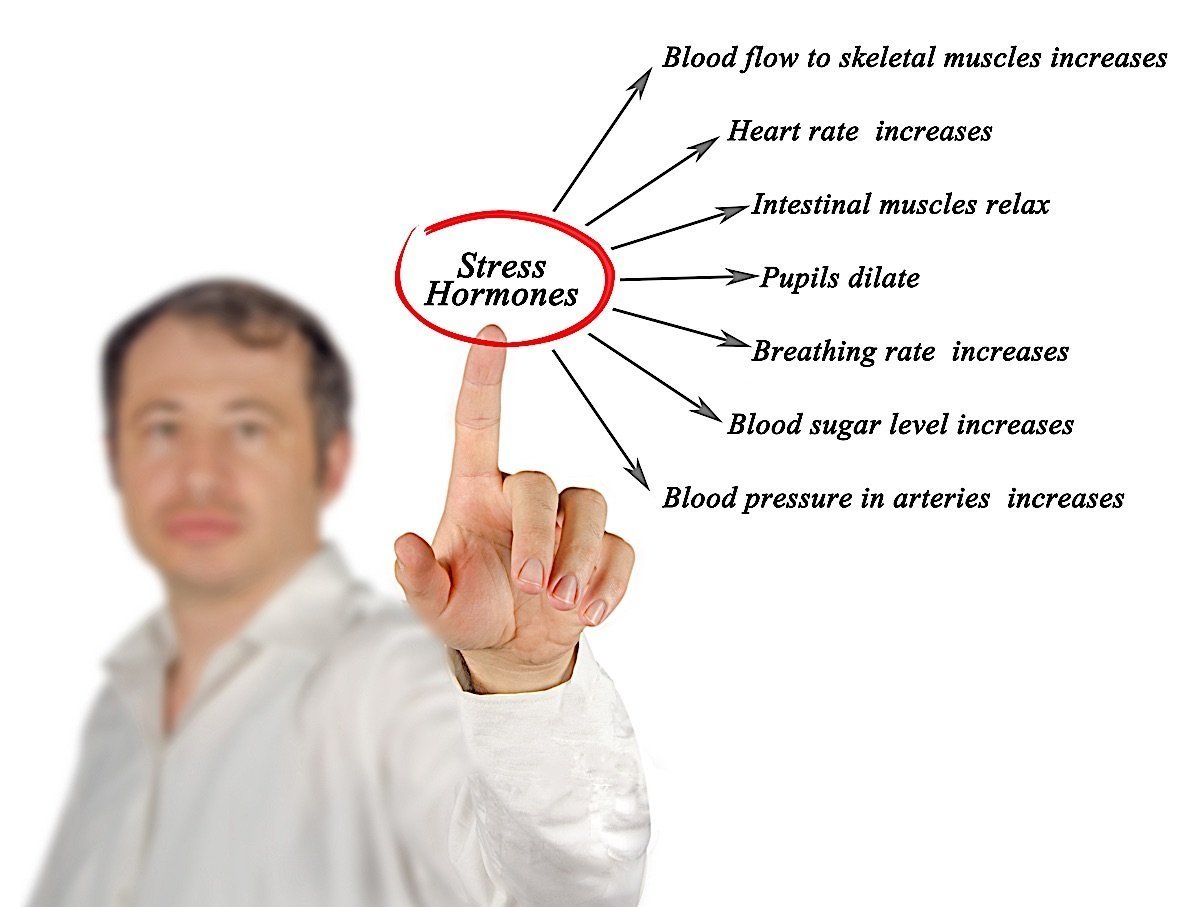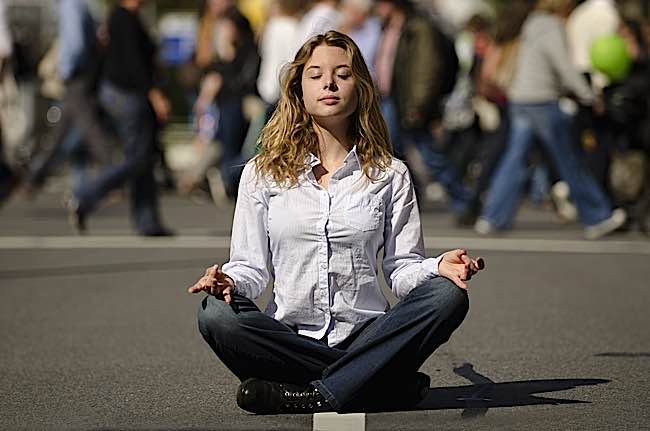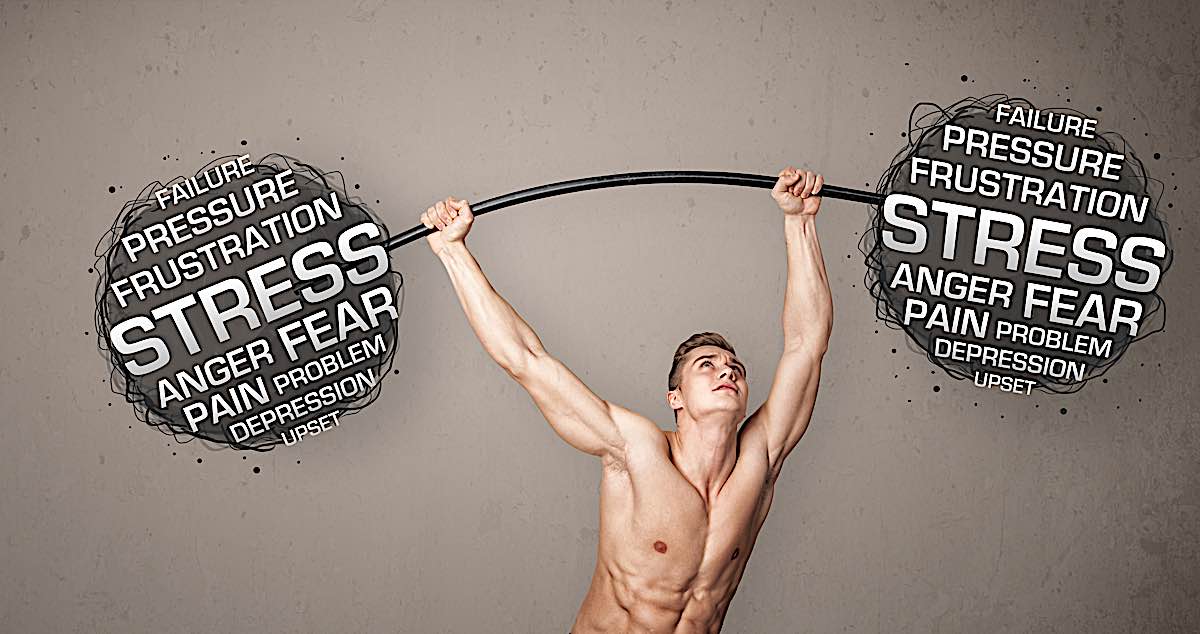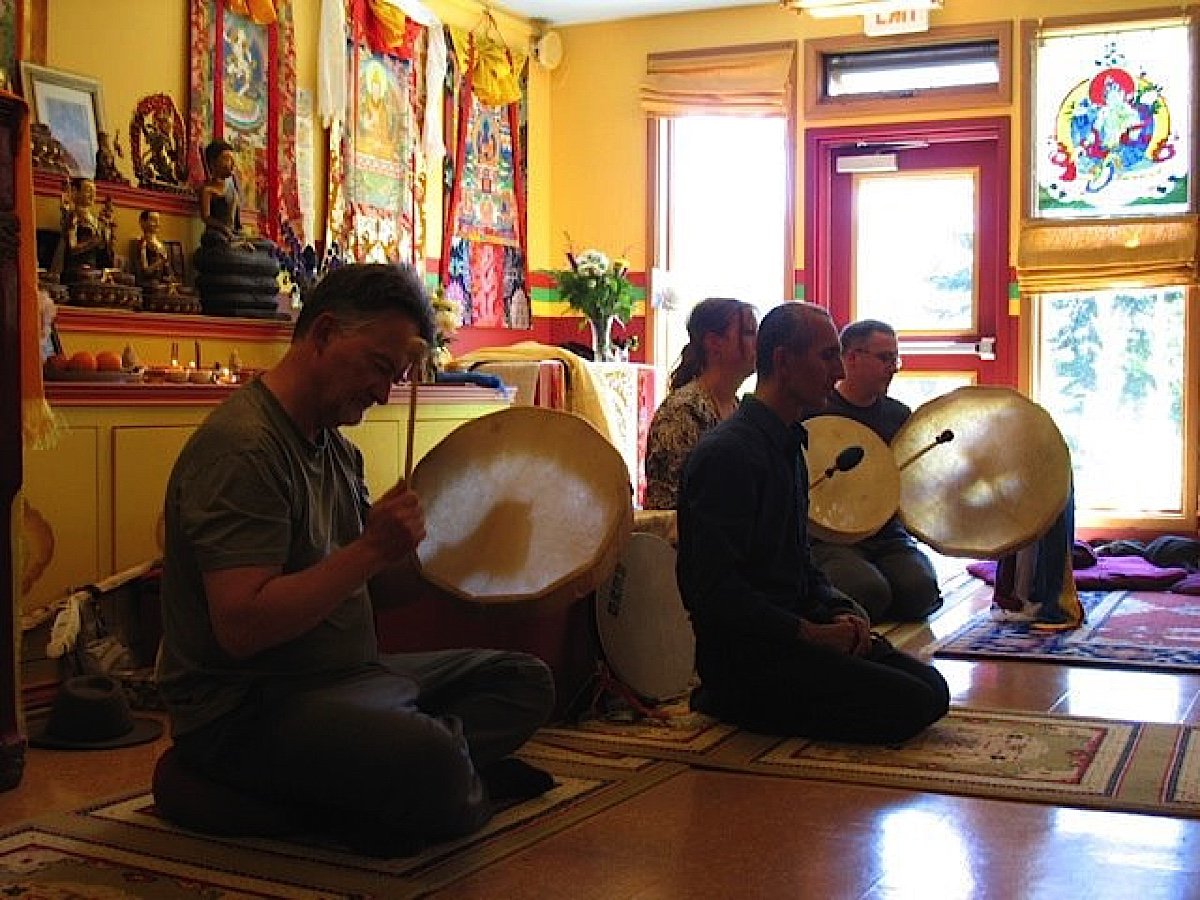The effects of stress on your body: how meditation and 8 other lifestyle changes can help you stay healthy
Feeling stressed? Read on for more information about symptoms, effects and how to fix it.
What is stress?
By Chloe Bennet
 Stress is the way humans respond to danger or harm whether it’s real or just in their mind. We feel threatened and then a chemical reaction causes us to act in order to prevent an injury of any kind.
Stress is the way humans respond to danger or harm whether it’s real or just in their mind. We feel threatened and then a chemical reaction causes us to act in order to prevent an injury of any kind.
This is also known as “fight or flight” response. If you are experiencing this, your heart rate increases, breathing gets harder, your muscles are tighter than usual and you have higher blood pressure.
This is how you protect yourself. This is when you are ready to charge.
Stress happens differently to different people – you might get stressed over something your friend never would have. Some people handle stress well, some are not that well. Not all stress is bad either – although we all have a bad association with it nowadays. In small doses, stress can actually save your life or get you running from the danger.
Our bodies are made to handle this – but not the chronic stress that we face today.

What are the symptoms of stress?
Symptoms of stress can vary from person to person as we don’t always respond to things the same way. There are also different levels of response from physical to mental or even behavioral. Here are some of those symptoms:
Emotional Symptoms

Emotional symptoms include:
- Becoming easily frustrated or moody
- Feeling overwhelmed
- Avoiding people
- Difficulties relaxing or calming down
- Low self-esteem, depression and feelings of worthlessness
Physical Symptoms
Physical symptoms include:
- Low energy
- Upset stomach – in any way
- Headaches – including Migraines
- Chest pain
- Insomnia or poor sleeping
- Any aches and pains from tense muscles
- Frequent colds
- Low libido
- Shaking, cold hands or sweat
- Dry mouth
- Grinding teeth
Behavioral Symptoms
Behavioral symptoms include:
- No appetite or constantly needing food for comfort
- Procrastinating, avoiding responsibility
- Drinking, smoking, drug abuse
- Nail biting, fidgeting, pacing, leg shaking
 Cognitive symptoms
Cognitive symptoms
Cognitive symptoms include:
- Worrying
- Inability to focus
- Forgetfulness
- Pessimism
- Poor judgement
Long-term Effects of stress
Stress, while it may seem like a temporary thing, can leave some long-term effects on your mental and physical state. This is precisely why it needs to be handled timely and not when it’s too late. Again, to a certain point, stress is normal and fine. But past the point of being an occasional occurrence, it’s too much for the body. Here are some long-term effects:
- Mental health problems like depression, anxiety and so on.
- Heart diseases like heart attacks, stroke and high blood pressure.
- Obesity or eating disorders
- Sexual dysfunction
- Skin, hair and nail problems
- Menstrual issues
- Gastrointestinal problems

How to manage stress
Fortunately, there are ways to help yourself. They will probably not be the definite solution for all your troubles but they will help mitigate some of the issues and teach you and your body and mind to deal with stress better or not to perceive certain situations as stressful.
Stress Relief With Meditation
Meditation is an activity that has numerous health benefits and it can be a really effective way to reduce stress. Harvard University did a study where they have shown the scientific background of meditation and mindfulness. However, it can be a bit hard for some people to keep doing it after that initial session. Life gets in the way.
But, meditation is an easy habit. With practice, it becomes easier and easier to remember to do it every day. It becomes more effective as you practice too, since you build resilience to stress. To get into meditation in an easy, simple way, you should start with the basic version.

But don’t worry, this basic version will be able to give you inner peace in the long run and you’ll be able to use it effectively even later, when you gain more experience.
- Start with a comfortable position – Find what’s comfortable for you, it doesn’t need to be the position people consider is traditionally related to meditation. You want to be relaxed as much as possible. However, it’s good if your back is straight, to prevent you from falling asleep.
- Close your eyes – Once you sit comfortably, close your eyes gently and relax all of the facial muscles. Just close your eyes, don’t squeeze. Relax every part of your body.
- Clear your mind – This is where most people give up because this seems impossible. But what they don’t understand is that the goal isn’t to see blank in your mind right away, but to just gently steer your mind towards silence in the beginning. As you practice, this will get easier too.
- Keep practicing every day!
Don’t expect it to be perfect because it will never be. Even meditation masters have to struggle with their inner voice getting in the way sometimes.
Start with small sessions, minutes long. When you feel like you are comfortable with that and that you could do more, go for 10 and then 15. After that, you can slowly increase this time to full 30 minutes, which is ideal for any lifestyle. The more you practice, the better it will be and you will get more benefits from it. Set your own meditation goals.
Stress is a big problem nowadays. Everyone is experiencing it and we are not that well-equipped to handle it either. It creeps into our lives and ruins some of the best moments and situations. If you want to prevent stress and learn to handle it better, it will take time and effort. Reducing stress means completely rewiring your own body to relax instead of jump to action. Meditation and proper lifestyle, just like some of the tips above can help you live a better, less stressful life.
[See this previous feature on peer-reviewed studies of the benefits of meditation>>]

Exercise
“Exercise is a great way to get rid of some of that extra energy that gets built up as bad things happen. Often we keep a lot of our anger or sadness – or both – bottled up inside that we need a vent. What better way to vent than by exercising,”says Molly Halley, an author at Elite Assignment Help and Big Assignments.
For one, you’ll let go of everything you carried inside. You’ll also look and feel a lot better.

Eat well
Eating well should go hand in hand with exercising. There is some food that can make you jittery or simply feeling bad so you should definitely stop taking it. For instance, if coffee has a bad effect on you, stop drinking it. Take some tea or tisane instead. Next, junk food isn’t your friend. All it does is sit in your stomach with no value and you feel sluggish and lazy. Eat some fruit and vegetables, some fibers and protein – but the right kind; bacon is not protein. Avoid sweets.
Avoid triggers
Watch yourself carefully. Notice what triggers your stress. Is it phone notifications? Your boss yelling at you? Deadlines? Family?
The simple way to avoid stress is to avoid triggers that cause it. For instance, turn off your phone notifications, talk with your boss, remind him that yelling is abuse, don’t be lazy and finish everything at least a day before the deadline, don’t gather with family that often and so on.

Do the activities you love
So, now that you have learned to avoid stress, you should do the things you love doing. Read, walk, run or do anything else that you like. Fill your free time with the things you love. Again, make sure that the time is really free because you don’t want to get lazy with your work.
Socialize
This tip is only for those who really like going outside and hanging out with people. There are plenty of introverts who don’t like it and prefer staying in. That’s okay. But if you feel like a friend or a member of your family could be a good company, go for it. Spending time with people is one of the best ways to lower your stress levels.

Use music, art or writing
Writing, drawing, doodling or painting can all be activities that could potentially help you decompress and feel less stressed.
[This topic was covered extensively in this separate feature on drumming>>]
Talk to a professional
“A therapist is always a good choice when you are trying to get rid of stress,” says Ginny Carson, a regular contributor to State Of Writing and Australia Help.
Change your lifestyle
If none of these steps work, try changing your lifestyle. Change your career, your home or anything else you can that will help you become a more peaceful person. Many CEOs have switched up their busy lifestyles for a more natural, relaxing one.
Stress is a big problem nowadays. Everyone is experiencing it and we are not that well-equipped to handle it either. It creeps into our lives and ruins some of the best moments and situations.

If you want to prevent stress and learn to handle it better, it will take time and effort. Reducing stress means completely rewiring your own body to relax instead of jump to action. Meditation and proper lifestyle, just like some of the tips above can help you live a better, less stressful life.
Chloe Bennet works as a content writer and proofreader with years of experience at Boom Essays and Literature review writing help. Chloe also has a degree in Education and loves writing about edtech and teaching strategies at Essayroo.
Important note: seek advice
Always seek the advice of your physician or other qualified health care provider with any questions you may have regarding a medical condition or treatment and before undertaking a new health care regimen, and never disregard professional medical advice or delay in seeking it because of something you have read on this website.
More articles by this author
Search
Latest Features
Please support the "Spread the Dharma" mission as one of our heroic Dharma Supporting Members, or with a one-time donation.
Please Help Support the “Spread the Dharma” Mission!

Be a part of the noble mission as a supporting member or a patron, or a volunteer contributor of content.
The power of Dharma to help sentient beings, in part, lies in ensuring access to Buddha’s precious Dharma — the mission of Buddha Weekly. We can’t do it without you!
A non-profit association since 2007, Buddha Weekly published many feature articles, videos, and, podcasts. Please consider supporting the mission to preserve and “Spread the Dharma." Your support as either a patron or a supporting member helps defray the high costs of producing quality Dharma content. Thank you! Learn more here, or become one of our super karma heroes on Patreon.
Chloe Bennet
Author | Buddha Weekly
Chloe Bennet works as a content writer and proofreader with years of experience at Boom Essays and UKWritings. Chloe also has a degree in Education and loves writing about edtech and teaching strategies at Essayroo.













